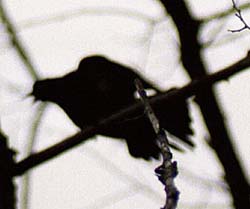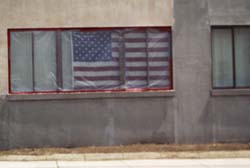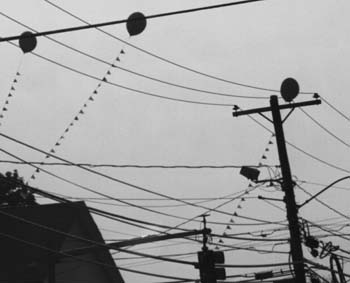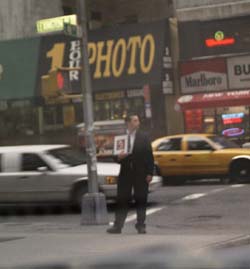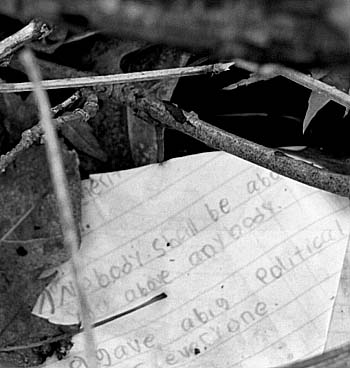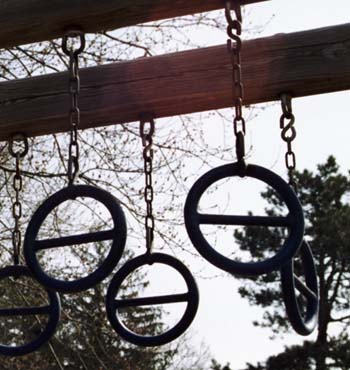
In her spotty and remote religious education there hadn't been a big emphasis on glossolalia. No one ever had, to her recollection, risen from the pews of Andover's West Parish Church and spoken in tongues. It would have been, at the very least, unseemly. In fact, a few years ago, she'd had to look up "Pentecost," completely unclear on its origins and significance. She'd been amused by Peter's rejoinder to the skeptics:
They can't be drunk. It's nine o'clock in the morning ! And she'd liked the image of how people of all the disparate languages could understand what was being said -- as if the sign had been short-circuited and pure significance were pouring through, the antithesis of Babel.
She herself was tongue-tied. A quiet child. "Paula should," read all her report cards, "participate more in class." She hated the sound of her voice. Hated social gatherings, and the need to engage in small talk. Maybe that's what attracted her to Merton and the Carthusians -- all that blessed silence.
She'd seen a video of young people speaking in tongues. It had made her vaguely queasy. Like faith healing. Holy swoons. Revivals. Snake handlers.
In her imagination, a blank-eyed face looms:
Have YOU accepted CHRIST as your personal savior ?She sat in her car outside the gray stone church. Main Street, this long holiday weekend, was practically deserted. One block down the slightly dilapidated steeple of the Congregational Church dominated the ecclesiastic skyline of upper Main Street. It was, for the first time in weeks, a beautiful Sunday morning, cloudless, breezy, delightfully cool. She watched as a woman ducked into a basement entrance of a nearby office building. A small sign read Boston Meditation Group. Sunday Morning, indeed.
She took what was becoming her accustomed place in the sparsely populated pews -- right side, back, behind the dark pillar that announced the hymns. At the doorway, the combination of candlesmoke and organ music had given her a little Proustian frisson. A la recherce du Church perdu, indeed. How could she have lost something she'd never truly possessed ? True, she'd been baptized. She even remembered it. She was eight, her brother a toddler. They'd given her a Bible. It was inscribed: June 12, 1960. She still had it. The binding was a little worn, and, in college, she'd scribbled notes throughout Job (she'd written a paper) and doodled an unfortunate bespectacled and berobed preacher at the end of Ecclesiastes, saying "Man is but a vain beast. Vanity of Vanities. Oh my." He was, her label announced, "Koheleth, president of the Alexandria Anti-vivisection league." What was
that all about ?
The organist -- she learned later he was a last minute ringer for someone sick -- fumbled his was through the prelude as she arranged her texts -- BCP, hymnal, bulletin -- and tried to compose herself. She felt uneasy. An intruder. An interloper. Conspicuous. Full of bad faith. A poseur. A fake. An imposter. Inauthentic. But she was trying. Sincerely. She'd gotten a book. The Anglican Vision. She'd learned about Vera Scudder, a Wellesley English professor, marxist, social activist, lesbian, devout and contemplative Anglican. An Episcopal Dorothy Day.
"This is impossible," she thought, squirming on the hard pew. "What am I doing here ?"
Sooner or later, she knew, she was going to have to deal with Jesus. She pictured him plopping down on the pew next to her, wearing an "I (Heart) Jesus" billed cap. Grinning at her. Jesus Christ, gadfly.
But for today it was the apostles. And the Holy Spirit. The priest, a wonderful and fluent speaker, precise and clear, gave his sermon from the aisle. He looked impressive in his white beard, white robe and red, pentecostal stole. He talked about the Holy Spirit and oneness. That was fine, practically Buddhist. And then, about mission. Mission ? Was the "E" word about to be spoken again ?
"What am I doing here," she thought again. It was a sincere question.
She entered the queue to communion, still fretting. The tall, stately man with Parkinson's was in front of her again. Plus another man wearing oxygen. She thought about incarnation and affliction. And compassion. Feeling together. Suffering together. God and humans. Humans and Humans. "In" Christ. All part of the Logos.
Suddenly, a seeing eye dog -- a big, quiet, German shepherd in a leather harness -- trotted out of a pew and headed toward the altar. Looking for its master.
She smiled. Could this be a sign ? A sign from dog ?
Someone, something, to evangelize
her out of her blindness ?


























